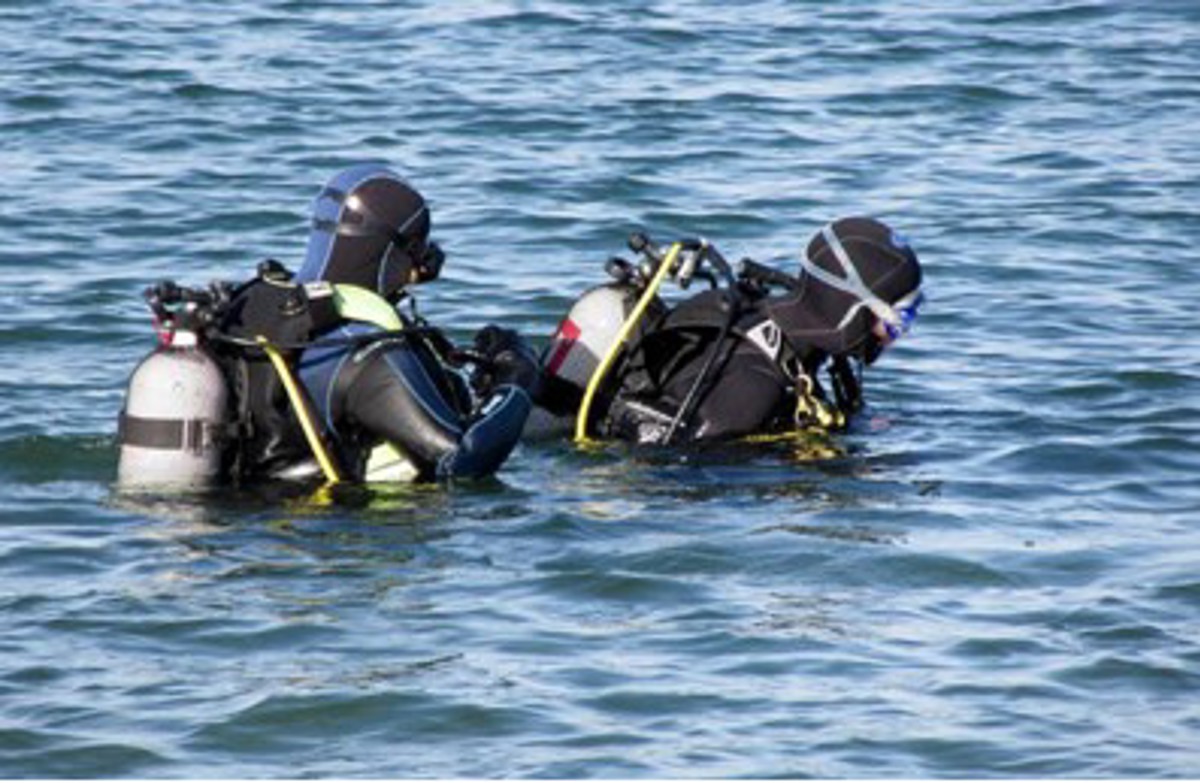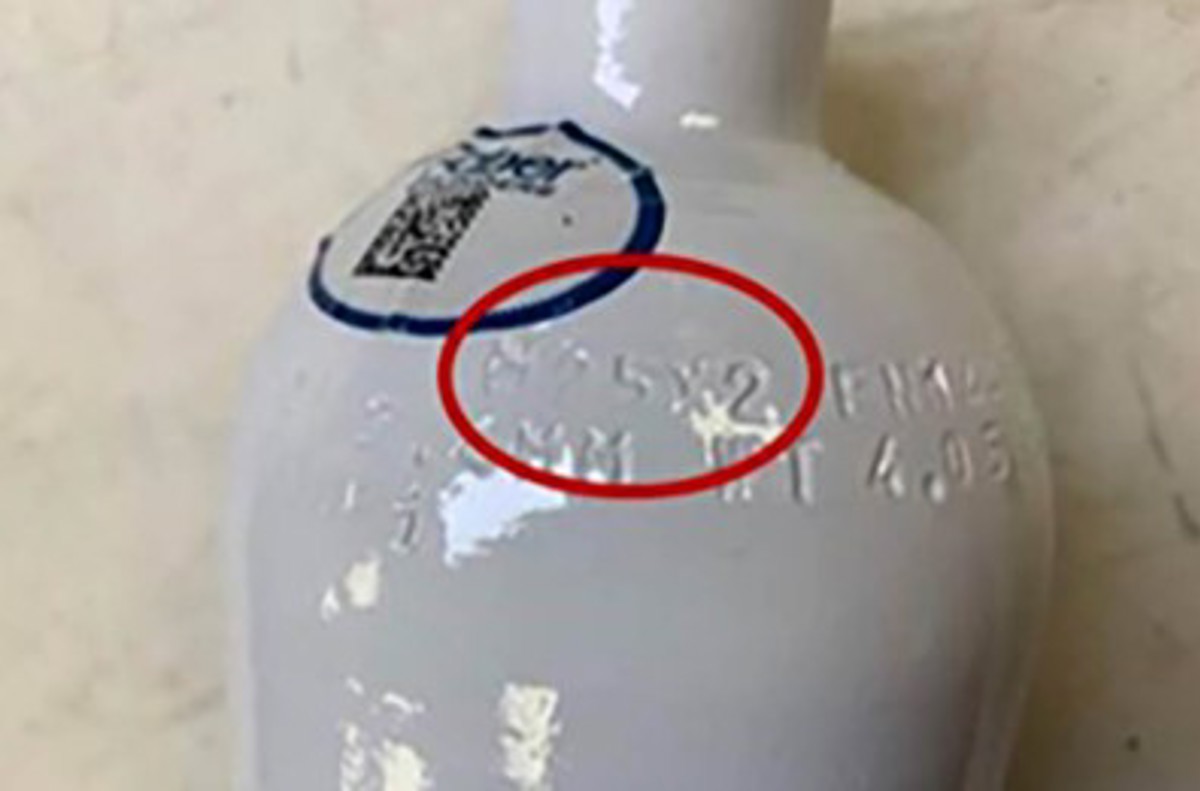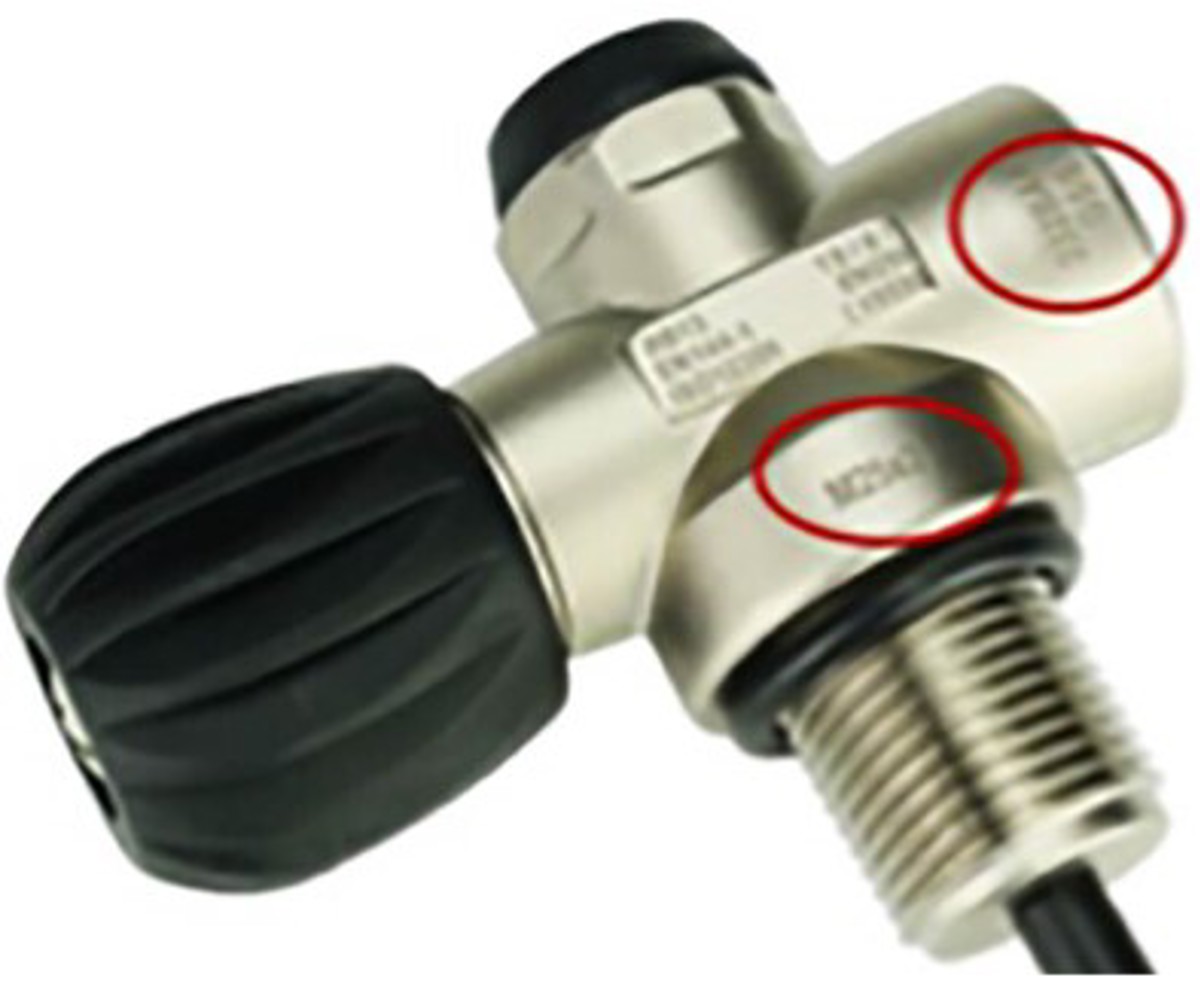Diving instructor killed – incorrect valve threads
- Safety Flash
- Published on 18 January 2023
- Generated on 8 February 2026
- IMCA SF 03/23
- 1 minute read
Jump to:
The Dutch Labour Inspectorate (Nederlandse Arbeidesinspectie) reports an incident in which a diving instructor was killed. The incident is reported here (in Dutch).

Diving instructor was killed at work

Diving cylinder

Diving cylinder valve
What happened?
During a dive, the valve came loose from the diving cylinder and fatally hit the diving instructor; a cylinder with internal thread G3/4 was used, which was fitted with a valve with external thread M25x2.
What was the cause?
Threads on the diving cylinder and the mounted valve were incompatible.
In this case, the screw thread of the valve was slightly smaller than that of the screw thread in the diving cylinder.
The result was that there was an increased risk that the valve will come loose from the cylinder when at pressure.
Lessons learned
Members are advised to follow the guidance contained within IMCA D064 Guidance on diving cylinder and valve thread compatibility.
The Dutch Labour Inspectorate (Nederlandse Arbeidesinspectie) notes that despite various (international) publications about the prevention of such incidents, these situations unfortunately continue to occur.
Related safety flashes
-
IMCA SF 05/17
3 March 2017
-
-
IMCA SF 01/16
7 January 2016
-
IMCA SF 19/14
18 December 2014
-
IMCA SF 18/13
20 December 2013
-
IMCA SF 05/10
28 July 2010
-
IMCA SF 12/09
17 August 2009
IMCA Safety Flashes summarise key safety matters and incidents, allowing lessons to be more easily learnt for the benefit of the entire offshore industry.
The effectiveness of the IMCA Safety Flash system depends on the industry sharing information and so avoiding repeat incidents. Incidents are classified according to IOGP's Life Saving Rules.
All information is anonymised or sanitised, as appropriate, and warnings for graphic content included where possible.
IMCA makes every effort to ensure both the accuracy and reliability of the information shared, but is not be liable for any guidance and/or recommendation and/or statement herein contained.
The information contained in this document does not fulfil or replace any individual's or Member's legal, regulatory or other duties or obligations in respect of their operations. Individuals and Members remain solely responsible for the safe, lawful and proper conduct of their operations.
Share your safety incidents with IMCA online. Sign-up to receive Safety Flashes straight to your email.